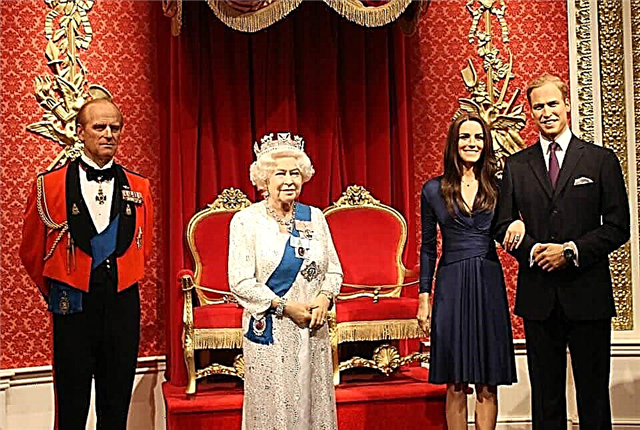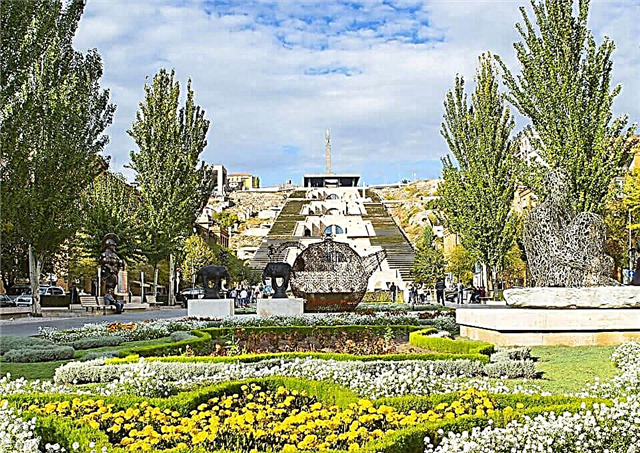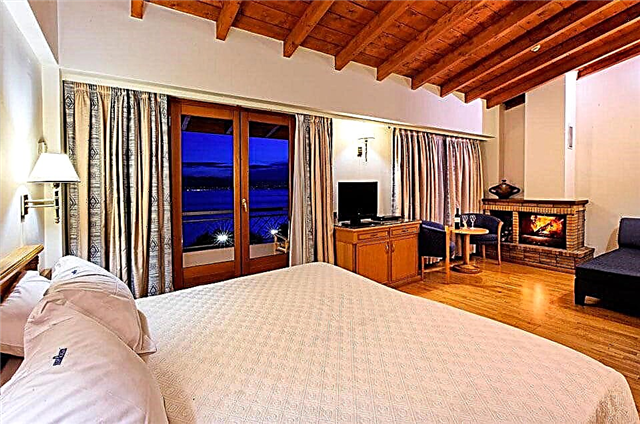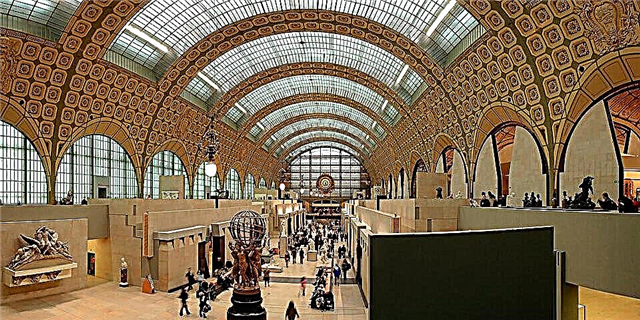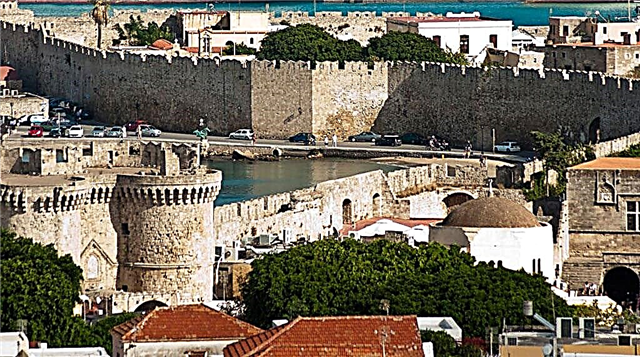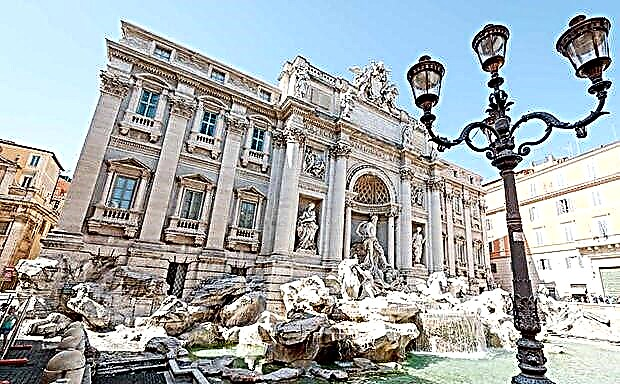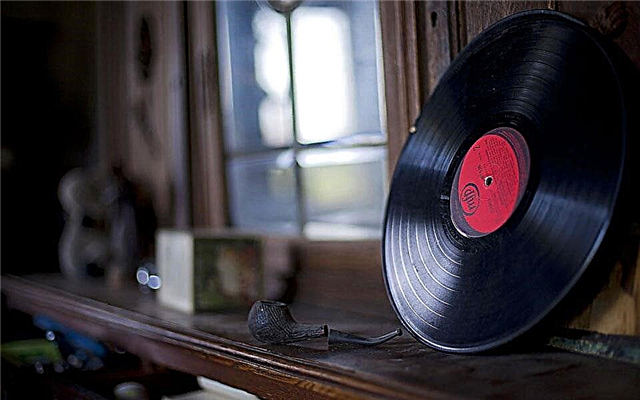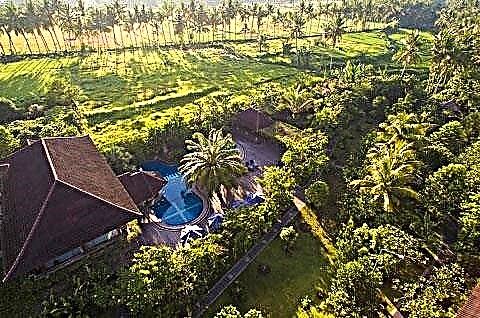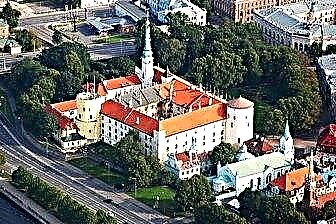The small and proud capital of Latvia is the center of the heritage of Northern Europe and an important cultural center of the entire Baltic region. People come here not so much to taste the Riga balsam or taste the Baltic sprats, but rather for interesting excursions and educational pastime. There are many museums, galleries, historical monuments and architectural monuments in Riga.
The old town is filled with interesting cultural sights, elegant cathedrals of various religious denominations adorn the squares, and hospitable cozy taverns await tourists in the bowels of medieval streets. Riga is a glorious city of ancient trade guilds, whose traditions go back several hundred years and remain alive to this day.

The best hotels and hotels at affordable prices.
from 500 rubles / day
What to see and where to go in Riga?
The most interesting and beautiful places for walking. Photos and a short description.
Old city
The historical center of the Latvian capital, where the most interesting sights are located. In the depths of the winding streets of the Old Town, you can still feel the indescribable atmosphere of the Middle Ages. The architecture, traditional for Northern Europe, can be traced here in every structure and in every bend of the paved stone pavement.

Riga castle
XIV century castle on the banks of the Daugava (Dvina) river. It was built for the masters of the Livonian Order. As a result of numerous battles fought by warlike brothers, the castle was repeatedly destroyed and rebuilt. From the second half of the 16th century, the building was in turn owned by Polish, Swedish and Russian crowned persons. Since 1922, the castle has become the residence of the Latvian president.

Town hall
The historic building of the Riga City Hall dates back to the 13th century, but it was destroyed by shelling and fire in 1941. Only ruins with surviving fragments of the facade remained of the town hall. The restoration began only in the late 90s. XX century. The new building was completed by 2003. It is almost a complete copy of the historic town hall.

House of Blackheads
A remake building built in the late 90s. in a manner typical of Northern European cities. Earlier, from the XIV century until 1941, a historical building with the same name was located in its place. It belonged to the merchant brotherhood of the Blackheads, who adapted it for trade and entertainment. For many centuries the House of the Blackheads was considered one of the most beautiful buildings in Riga.

House with black cats
The house is located within the Old Town, it is one of the popular attractions of the Latvian capital. The building was erected at the beginning of the 20th century by F. Shefel. It is believed that the figures of cats on the towers appeared thanks to the idea of the merchant Blumer, the former owner of the house. The animals were turned with their backs to the windows of the merchant's guild, where Blumer was refused. Thus, the cunning man took revenge on the guild leadership.

House of Mentzendorff
The building of the 17th century, where the oldest pharmacy in the city is located. In addition to medicines, ink, gunpowder and cosmetics were sold here for two centuries. It is believed that the recipe for the famous Riga balsam was invented in this pharmacy. The tincture contains several hundred herbs, oils, berries and fruits as ingredients. It has been used as a pain reliever.

Three brothers
A complex of residential buildings in the historical center of Riga, preserved from the 15th century. It is an example of medieval town planning. The buildings are located so close to each other that it seems as if they are one structure. Presumably, the "Three Brothers" were built by artisans from the same family. People still live in the houses.

Large and Small Guilds
The structures that once belonged to the most influential Riga craft and trade guilds - Big and Small. In the middle of the XIV century, these two associations left the guild of the Holy Cross. The premises were built in the 19th century in the English neo-Gothic style. The interiors are decorated with original chandeliers, beautiful stained glass windows and decorative wall paintings.

Yakovlevsky barracks
17th century barracks, built for the Swedish military by the residents of Riga. After the city was conquered by Sweden, the townspeople were obliged to maintain a military garrison on their territory. Under Peter I, the barracks were demolished and rebuilt in the style of Dutch classicism. Since the 19th century, administrative services, a school, and a labor exchange have been located here. The complex is currently owned by the American Chamber of Commerce.

Convention courtyard
An architectural monument of the XIV-XVIII centuries, where the residence of the Order of the Swordsmen was previously located. It is located in one of the oldest quarters in Riga. Several centuries ago, there was an order castle, which was later destroyed. In connection with the relocation of the brothers-monks to another place, a convention was opened on the territory of the complex (in other words - a shelter).

Albert street
A small street built up in an interesting architectural manner called Art Nouveau (German name for Art Nouveau). Most of the structures were erected in just two years according to the designs of M. Eisenstein. Here is the Riga Art Nouveau Museum, embassies, offices, administrative buildings. Albert Street is called the "pearl of Art Nouveau".

Powder tower
Part of the old city fortifications of Riga, which have survived to this day in a fairly good condition. The tower appeared even before the conquest of the city by the Livonian Order, but the structure was destroyed in the 17th century (but was soon restored). During the domination of the Russian Empire, it was decided to destroy the entire system of fortifications in Riga, and leave the powder tower as a memory.

Swedish gate
A gate created at the beginning of the 18th century during the Swedish occupation of Riga. Now this building is a recognized architectural monument of Latvia and all of Europe, as it has survived to this day in almost its original form. A Swedish garrison was stationed near the gate, so the passage was used primarily by the military.

St. Peter's Church
Medieval temple famous for its high bell tower. The height of the tower is 123.5 meters, the spire is 64.5 meters. The facade of the bell tower is decorated with an ancient clock, and the top is crowned with a weather vane - a golden cockerel. The tower of St. Peter's Church dominates the buildings of the historical center of Riga and stands out favorably against the background of lower buildings. A monument to the Bremen Town Musicians is located near the church.

The Dome Cathedral
Riga Cathedral of the XIII century, one of the largest churches in the entire Baltic region. The cathedral belongs to the Evangelical Lutheran Church of Latvia. The building is an example of the transition of the medieval Romanesque style to the Northern European Gothic. Some fragments of the interior decoration are made in the Renaissance style. One of the main attractions of the temple is a grandiose organ 25 meters high, consisting of almost 7 thousand pipes.

Nativity of Christ Cathedral
Cathedral of the Orthodox Church of Latvia. Funds for its construction were allocated by the Russian Emperor Alexander II, and the autocrat also donated 12 bells to the future temple. In the 60s. In the 20th century, the interior was almost completely destroyed; a cafe, planetarium and other institutions were placed on the territory of the cathedral. The restoration began in the 90s. after the collapse of the USSR.

Cathedral of Saint James
The main Catholic church in Riga, first mentioned in documents from the beginning of the 13th century.The structure is made of bricks and represents an example of the transition from the Romanesque style to the Gothic architectural style. During the Church's Reformation, the cathedral experienced many pogroms and arson, as a result of which many cultural values were lost.

Latvian National Opera
The most famous and renowned musical theater in the country, where leading soloists perform and world masterpieces of ballet and opera are staged. The stage opened in 1919 with R. Wagner's production of The Flying Dutchman. The opera hosts up to 200 performances annually, of which five to seven are premieres. Both classical productions and modern interpretations of operas created by young authors are equally successful.

Building of the Latvian Academy of Arts
An architectural monument of the early XX century in the historical center of the Latvian capital. At first, a German gymnasium was located here, then a commercial school, only by the middle of the 20th century the Latvian Academy of Arts was opened. The construction project was developed by V. Bokslaf. According to the architectural idea, the complex should symbolize the strong connection between Riga and the Hanseatic League (trade and political union of cities in North-Western Europe).

Museum of the History of Riga and Navigation
The museum is located on the territory of the architectural ensemble of the Dome Cathedral. This is one of the oldest exhibitions in Latvia, founded in the 18th century. Collections from various historical and archaeological communities in the Baltics are exhibited here. The museum funds contain more than half a million exhibits. They are arranged in the halls according to theme and chronology.

Museum of Foreign Art
The Art Gallery of Latvia, where the most impressive exposition is collected, from ancient Egyptian art to the latest period of our time. Here canvases of representatives of German Romanticism, Belgian and Dutch schools are kept and exhibited. It will also be interesting to look at the artifacts of the Ancient World, and art objects of Medieval Europe.

Art Museum
The official name of the gallery is the Latvian National Museum of Art. More than 52 thousand exhibits are exhibited here: extensive collections of Latvian masters, paintings by European and Russian artists. Among the famous paintings are the works of N. Roerich, J. Rosenthal, I. Aivazovsky, V. Purvitis. On the territory of the gallery, temporary exhibitions of famous masters of the brush are constantly organized.

Museum of the Occupation of Latvia
Museum dedicated to the period of Latvian history from 1940 to 1991. The main part of the exposition is devoted specifically to the Soviet period of Latvian history, the period 1941-1944. - German occupation. The exposition of the museum puts the personality of Stalin and Hitler on the same level, and also actually equates Nazi Germany and its destructive activities with the USSR. Because of this, some visitors assess the collections of the Museum of the Occupation rather ambiguously.

Riga Motor Museum
One of the best automobile museums in Europe. The exposition is based on the collection of the Latvian Antique Cars Club. The museum was created thanks to the efforts of enthusiasts who were passionate about the restoration of old cars and dreamed of a separate building where the results of their work could be placed. The first models of "Moskvich", "Fiat", "Mercedes", "BMW" and many other well-known and not so famous brands are exhibited here.

Riga Central Market
A real “gastronomic paradise” of the Latvian capital, where you can buy the freshest and most delicious products. The market is divided into five pavilions: meat, vegetable, fish, dairy and gastronomic. Outside the pavilions, they sell flowers, clothing and everyday items. All kinds of smoked meats are in particular demand among tourists: poultry, countless assortment of fish, sausages and other delicacies.

Freedom Monument
Monument erected in honor of the independence of Latvia in 1935. It is a sculpture of a woman standing on a high pedestal. The woman holds three stars in her hands, symbolizing the historical regions of Latvia. At the foot of the pedestal, there is a sculptural group consisting of historical characters from different periods. The monument is located on one of the central streets not far from Old Riga.

Arcadia Park
One of the most picturesque and popular landscape parks in Riga, founded on the territory of a private garden in the 19th century. Arcadia Park has undergone several renovations - at first it was an exotic garden with unusual plants and greenhouses where rare species of palm trees were grown, then it turned into an entertainment complex and eventually became a public city park for walking and recreation.

Vermanes Park
The city park, equipped with funds from the widow of Anna Verman and named after her. At the beginning of the 19th century, this place was a swampy area, which caused a lot of anxiety and inconvenience to the inhabitants of Riga. Then the authorities had the idea to drain the swamp and lay out a public park, and a rich widow donated a large sum of money for this good event.

Riga TV Tower
The tower of television and radio broadcasting with a height of 368.5 meters is the tallest structure of its kind in the entire Baltic region and the third highest in Europe. The tower is located on the island of Zakusala. Inside the structure, at a height of 99 meters, there is an observation deck, from where you can admire the panorama of the Gulf of Riga and the views of the city itself. Riga TV Tower was built in the period 1979-1986.

Cable-stayed bridge over the Daugava
An elegant engineering structure, one of the symbols of the dynamic modern Riga. The bridge was built in 1981. At that time, it was the longest hanging span over the river in the Soviet Union. The main pontoon is over 300 meters long and over 28 meters wide. The bridge is used by cars and public transport, and trolleybus lines are also laid.


